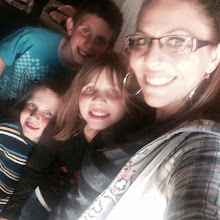by
Jocelyn Green In his State of the Union Address on Jan. 27, President Obama said that our men and women in uniform must know “that they have our respect, our gratitude, our full support. And just as they must have the resources they need in war, we all have a responsibility to support them when they come home.”
I agree. But if we really want to support the troops, that can’t be all we do. It’s not enough to slap a “Support the Troops” bumper sticker on our cars, or even to say thank you to the men and women in uniform we come across as we’re bustling through the airport. If we want to support the troops, we need to be supporting their families at home.
Obama mentioned that the government increased investments for veterans last year (applause), that the government is building a 21st century VA (applause), and that the First Lady has joined with Jill Biden to forge a national commitment to support military families. (Applause.)
Fine. Good. The need is great. But let us not think for one moment that government spending and initiatives to support these families can replace what neighbors, churches, and fellow citizens can do for one another.
Army wife Benita Koeman says, “I adopted a genuine ‘I can do this’ attitude about the second deployment. But I couldn’t do it alone, and most good intentions to help from the people we love fell by the wayside. As I struggled to take care of our young children (ages two, four and six years old), I felt alone and abandoned. At one point I bordered depression. I tried my best to smile, to fake like all was okay and to convince myself it was. But it wasn’t.”
The evidence for military families in need isn’t just anecdotal. A large-scale study published in January in the New England Journal of Medicine looked at electronic medical data for more than 250,000 of the nearly 300,000 women whose active-duty husbands were deployed to Iraq or Afghanistan from 2003 to 2006. The study found that 36.6 percent of women whose husbands had deployed had at least one mental-health diagnosis, such as depression, or an anxiety or sleep disorder
And let’s remember- these are just the results of those with official diagnoses. Many women resist seeking help for the same reason their husbands in uniform do—they fear a negative stigma.
“Besides fear for the safety of their loved ones, spouses of deployed personnel often face challenges of maintaining a household, coping as a single parent and experiencing marital strain due to a deployment-induced separation of an uncertain duration,” the study says.
Let’s face it. You don’t need a mental illness diagnosis to need a helping hand.
“I really needed signs to know that as I struggled, that people cared, cared enough to do something,” says Koeman. “But I did not get that.” As a result of her experience, she founded the Web site www.OperationWeAreHere.com, to serve as a clearinghouse of resources and ideas for how to support military families.
Please, don’t wait for a government initiative to do what anyone can and should do for one’s fellow American. Send a “reverse” care package to families of the deployed, remembering them on holidays, birthdays and anniversaries. Watch their kids so the solo-spouse at home can get a break every once in a while. Create a coupon booklet for free babysitting, a coffee date, financial counseling, running errands, an hour or two of housework, etc. Drop off a basket of favorite foods, movies or books. Find out what home appliance is broken (it never fails to happen during deployment) and help fix it. Rake leaves. Shovel snow. Clean out gutters. Pull weeds. Bring a meal, make a phone call… be there.
Supporting the military wife allows her to support her husband and children in a way that only she can. And knowing that his family is supported back home will allow the deployed spouse to better focus on his mission. When you minister to the military wives and children, you are supporting the troops as well.
Jocelyn Green is the author of Faith Deployed: Daily Encouragement for Military Wives (Moody Publishers 2008) and co-author of Battlefields & Blessings: Stories of Faith and Courage from the War in Iraq & Afghanistan (AMG Publishers 2009).
















